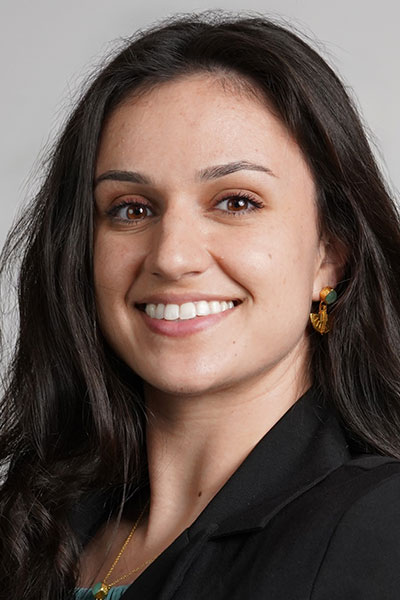
Poster presenter: Leila Milanfar, BS, Medical Student, University of California, San Francisco School of Medicine
Poster title: Community Mobility in a Diverse Cohort of Individuals with Systemic Lupus Erythematosus
Poster session A: Saturday, Nov. 16
What is your poster about?
“Restricted community mobility, defined by the frequency and help required for traveling from one’s bedroom to places outside of one’s town, is associated with reduced quality of life and greater risk of falls, hospitalization, and mortality among older adults, but little is known about community mobility among the aging population with systemic lupus erythematosus (SLE). We explored restrictions in community mobility, as measured with the University of Alabama Birmingham Life-Space Assessment, and the factors associated with these restrictions among a population-based cohort of primarily Black and female adults with SLE in metropolitan Atlanta.”
Why did you decide to investigate this topic?
“We partnered with Georgians Organized Against Lupus (GOAL) to investigate this topic because early screening for restricted mobility could delay or prevent poor health outcomes and help ensure continued independence and social connectedness for people with SLE. Our goal is to provide clinicians with data and tools to help preserve quality of life for people with SLE. By describing both the prevalence of restricted community mobility and associated characteristics, we can take a crucial first step toward this goal.”
What are you working on next related to this research?
“The next part of this research will involve exploring the underlying mechanisms that resulted in the findings of our project. For example, we found that Black participants from our cohort reported a substantially higher prevalence of community mobility restriction than white participants. Systematic racism and inequity have been posited to explain the associations between race and community mobility, with racial segregation, disparities in transportation access, and inequitable infrastructure development possibly playing important roles. Metropolitan Atlanta is a highly racially segregated metropolitan area, and it is also the metropolitan area with the highest degree of income inequality in the United States. A critical next step would be to examine these and other factors to contextualize our finding of the relatively high prevalence of community mobility restriction among Black participants.”
What excites you most about your work?
“One of the many things that I find exciting about this work is that our research questions are ones that the participants involved in GOAL wanted researchers to explore. This makes our project unique — we are serving people with chronic conditions by addressing their expressed needs through research. As a medical student whose goal is to provide excellent care to people with chronic conditions throughout my career, it is rewarding to be a part of research that is so patient-centered.”
What are you most looking forward to at ACR Convergence 2024 in Washington, D.C.?
“I am looking forward to meeting everyone at ACR Convergence and being a part of the Rheumatology Research Foundation Awards Celebration. It will be fun and rewarding to see everyone celebrated for the work they have done. Also, my mentor, Laura Plantinga, PhD, is taking us to Unconventional Diner, and I am looking forward to experiencing this and other DC eats!”

Registered ACR Convergence 2024 Participants:
Watch the Replay
Select ACR Convergence 2024 scientific sessions are available to registered participants for on-demand viewing through October 10, 2025. Log in to the meeting website to continue your ACR Convergence experience.
